Search Images
Browse Content (p. 538)
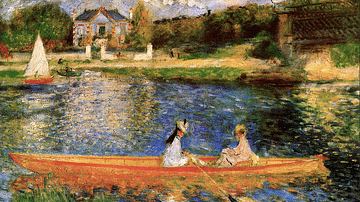
Image
Boating on the Seine by Renoir
A c. 1879 oil on canvas, Boating on the Seine, by Pierre-Auguste Renoir (1841-1919) the French impressionist painter. An archetypal impressionist painting which captures the effects of sunlight on the landscape, people, and water. Renoir...

Image
Portrait of Renoir's Mother by Renoir
An 1860 oil on canvas, Portrait of Renoir's Mother, by Pierre-Auguste Renoir (1841-1919) the French impressionist painter. An unfinished work showing the artist's mother Marguerite when she was 53 years old. It is an unusually honest portrait...
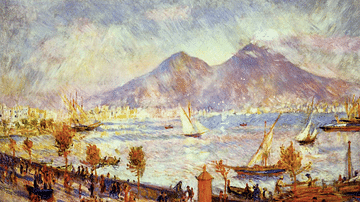
Image
The Bay of Naples with Vesuvius by Renoir
An 1881 oil on canvas, The Bay of Naples with Vesuvius, by Pierre-Auguste Renoir (1841-1919) the French impressionist painter. The artist was greatly impressed with the landscape and art of Italy and brightened his pallette as a result of...

Image
La Grenouillère by Renoir
An 1869 oil on canvas, La Grenouillère, by Pierre-Auguste Renoir (1841-1919), the French impressionist painter. Renoir and Claude Monet (1840-1926) spent time working together near the Seine at Croissy – a weekend destination for fashionable...
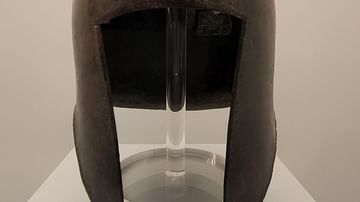
Image
Helmet of 'Illyrian' Type
The ribs on the crown were used for affixing the crest.
From the area of Olympia, Peloponnese. 600-550 BCE. Made from bronze. (Hellenic Museum, Melbourne, Victoria).

Image
Jules Le Coeur in the Forest of Fontainebleau by Renoir
An 1866 oil on canvas, Jules Le Coeur in the Forest of Fontainebleau, by Pierre-Auguste Renoir (1841-1919), the French impressionist painter. Renoir and other friends who were student artists went on frequent painting trips to the Fontainebleau...
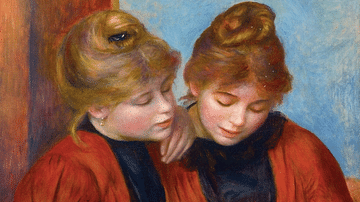
Image
Young Girls Reading by Renoir
An 1889 oil on canvas, Young Girls Reading (aka The Two Sisters), by Pierre-Auguste Renoir (1841-1919) the French impressionist painter. The two girls are Yvonne and Christine, daughters of the painter and collector Henry Lerolle. The brushstrokes...
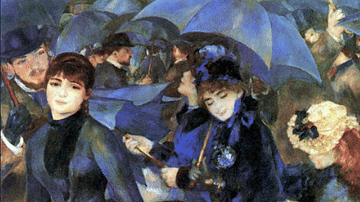
Image
The Umbrellas by Renoir
An 1881-5 oil on canvas, The Umbrellas, by Pierre-Auguste Renoir (1841-1919) the French impressionist painter. Probably painted in two distinct periods which would explain the hard lines and tones of most of the painting compared to the softer...
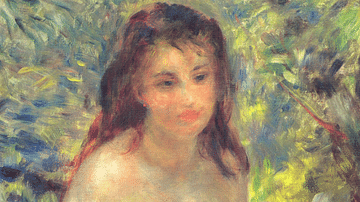
Image
Nude in Sunlight by Renoir
An 1875 oil on canvas, Nude in Sunlight (aka Study: Torso Effect of Sunlight), by Pierre-Auguste Renoir (1841-1919) the French impressionist painter. This work was shown in the 1876 Second Impressionist Exhibition in Paris and was savaged...
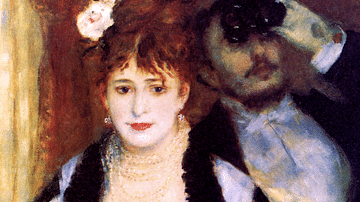
Image
La Loge by Renoir
An 1874 oil on canvas, La Loge (The Theatre Box), by Pierre-Auguste Renoir (1841-1919) the French impressionist painter. Renoir here uses a mix of techniques with the lady's face painted meticulously while other areas are more impressionistic...